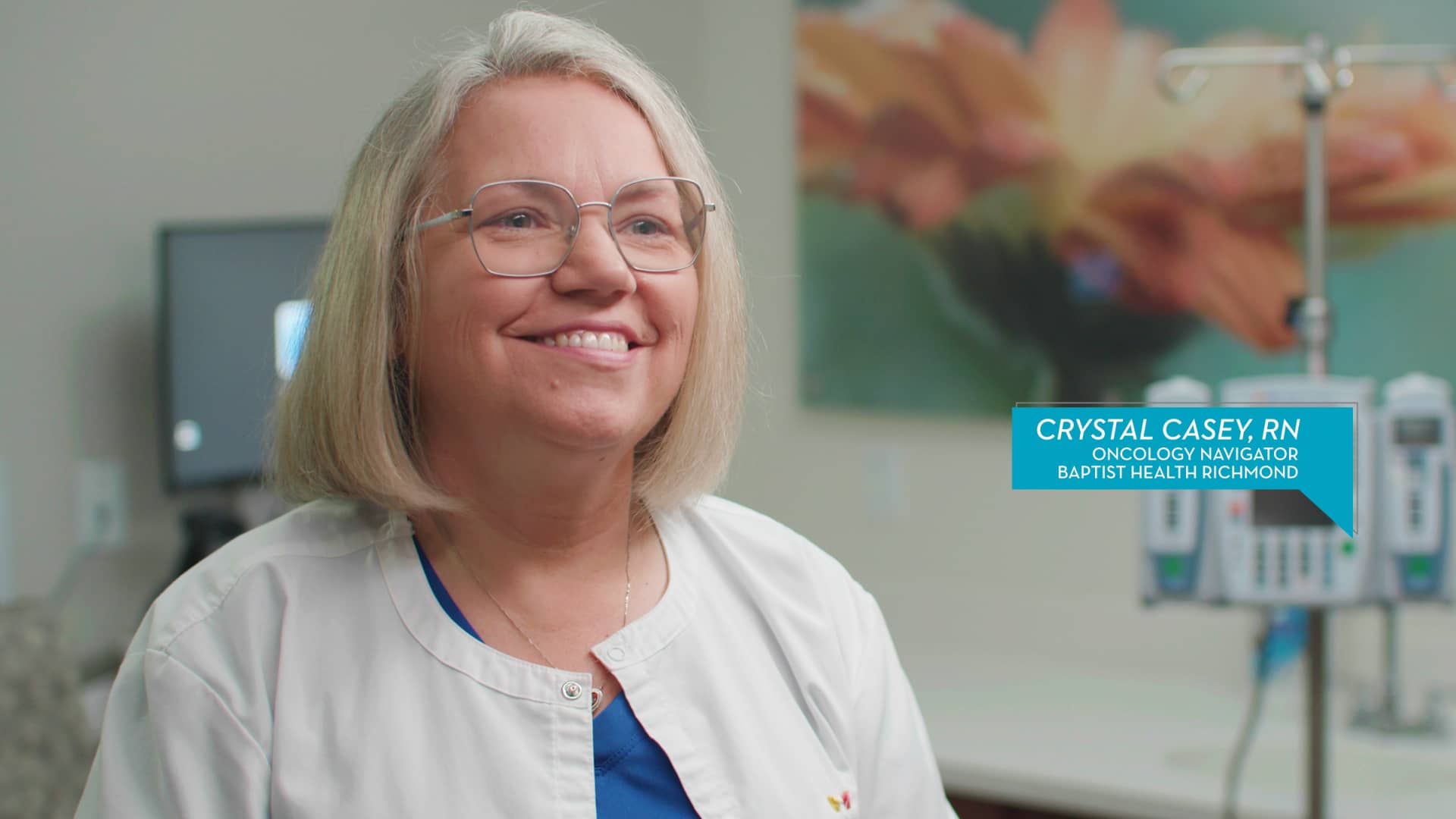Treating Kidney Stones
Baptist Health Richmond: Treating Kidney Stones
Urologist William Allen, MD, explains kidney stones, including how they form, why they’re painful, how to prevent them, and techniques doctors use to treat them.
Treating Kidney Stones Health Talks Transcript
William R. Allen, MD, Urology
A kidney stone is a solid object, sort of like a little rock. It’s an aggregation of crystals that form in the urinary tract. They typically form in the kidney. They make their presence known when they pass out of the kidney usually. They pass down a narrow tube to the bladder, and when it causes obstruction to the tube, that is what’s so terribly painful. That’s when people become aware of it. They tend to run in families, so there’s probably an inherited component or a propensity for stones, but diet and behavior have a lot to do with it. If a patient continues to form stones then we perform a metabolic evaluation, get a 24-hour urine, analyze the stone. Many times we can identify a specific condition that can be treated with medication. The stones that are larger than four millimeters, particularly the closer you get to 10 millimeters, there’s less and less likelihood they’re going to pass spontaneously, and then we have to do some sort of procedure to break the stone up into little pieces in order for the patient to pass it. The two most common techniques that are currently being used are shockwave lithotripsy, which uses sound waves that are broadcast through the back to break a big stone up into sand, or if a stone gets lodged in the lower ureter, we go up through the bladder with a laser and fragment the stone into little pieces. Most patients with a stone that’s going to be difficult to manage are referred to a urologist.



